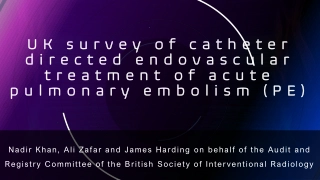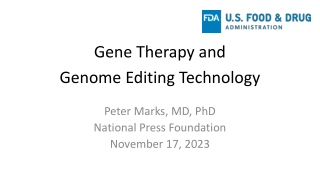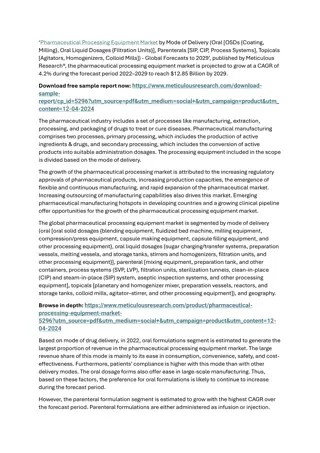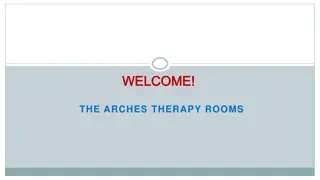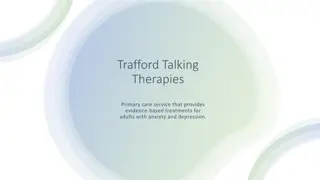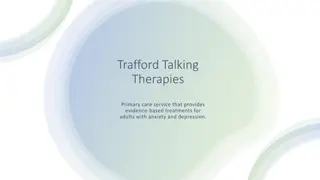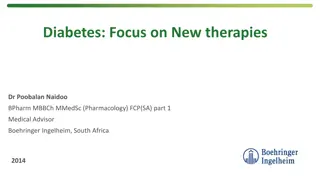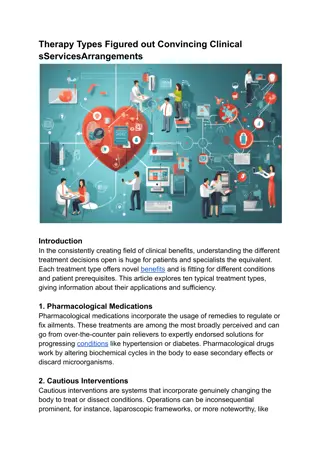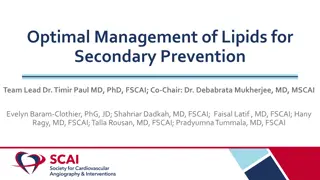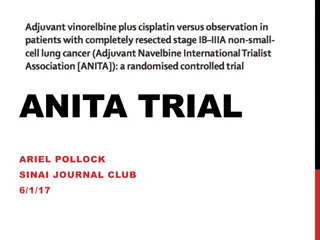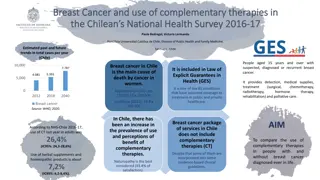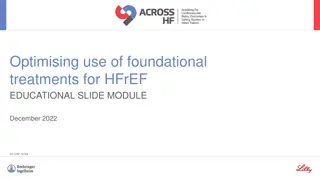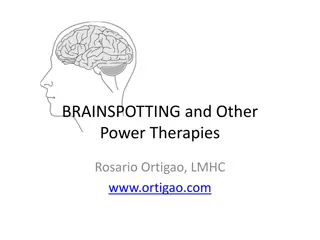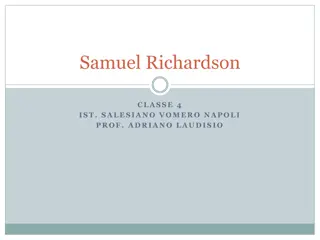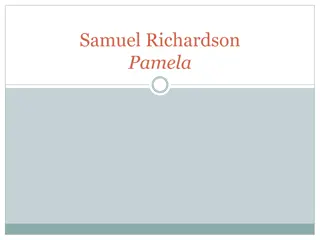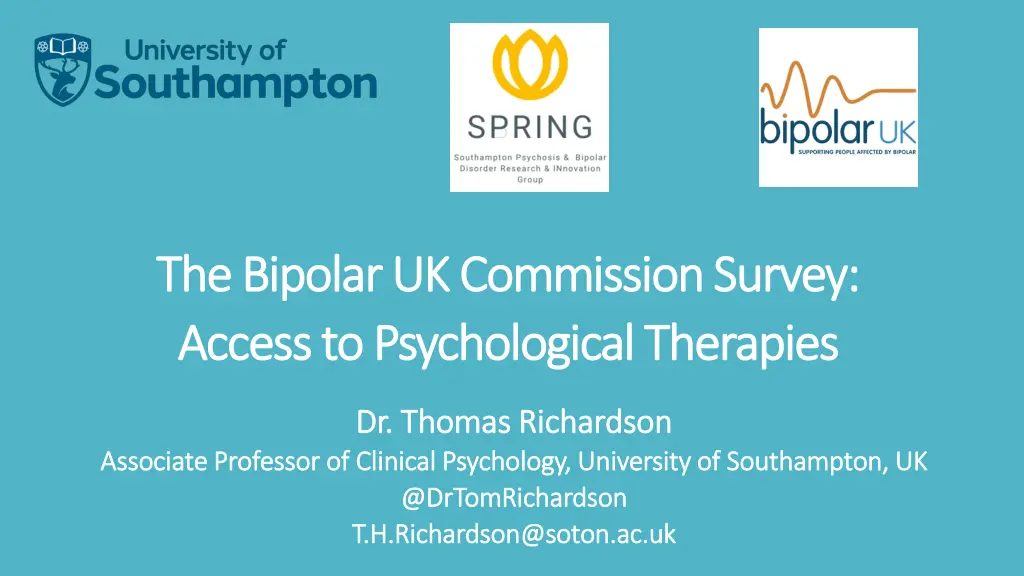
Understanding Bipolar Disorder: Importance of Psychological Therapies
Explore the significance of psychological therapies in managing Bipolar Disorder, based on evidence, guidelines, and access challenges in the UK. Learn about common therapy components, NICE recommendations, and the need for improved access to psychological interventions.
Download Presentation

Please find below an Image/Link to download the presentation.
The content on the website is provided AS IS for your information and personal use only. It may not be sold, licensed, or shared on other websites without obtaining consent from the author. If you encounter any issues during the download, it is possible that the publisher has removed the file from their server.
You are allowed to download the files provided on this website for personal or commercial use, subject to the condition that they are used lawfully. All files are the property of their respective owners.
The content on the website is provided AS IS for your information and personal use only. It may not be sold, licensed, or shared on other websites without obtaining consent from the author.
E N D
Presentation Transcript
The Bipolar UK Commission Survey: The Bipolar UK Commission Survey: Access to Psychological Therapies Access to Psychological Therapies Dr. Thomas Richardson Dr. Thomas Richardson Associate Professor of Clinical Psychology, University of Southampton, UK Associate Professor of Clinical Psychology, University of Southampton, UK @DrTomRichardson @DrTomRichardson T.H.Richardson@soton.ac.uk T.H.Richardson@soton.ac.uk
Conflict of Interest Declaration I have received payments for training NHS services about Bipolar Disorder. I receive royalties from a book on psychological therapies for Bipolar.
Bipolar and Psychological Therapies: Evidence Miklowitz et al. (2021): Meta-analysis of 39 RCTs showed psychoeducation delivered via family therapy or a in a group setting reduced the risk of relapse: 50% reduction in relapse for therapy + medication (compared to medication alone). Group or family interventions better at reducing relapse risk. CBT, family therapy and interpersonal therapy reduce depression symptom severity
Bipolar and Psychological Therapies: Evidence NICE guidelines: Psychological therapies should be offered in the long-term management of Bipolar disorder in secondary care, 16-20 sessions. Department of Health/Health Education England extra funding (IAPT-SMI) for training for CBT for Bipolar. National Health Service: Universal healthcare, provided free at point of delivery.
Overview: Common therapy components Psychoeducation Identify triggers Identify early warning signs Behavioural strategies Mood monitoring Thought identifying and challenging Relapse prevention plan Behavioural activation for acute symptoms Challenge cognitive vulnerability: Dysfunctional assumptions, perfectionism.
Bipolar and Psychological Therapies: Access Survey of over a thousand UK based individuals. Only 69% had ever been offered psychological therapy on NHS. Only 20% had ever been offered group-based psychoeducation. 26% had been told that they couldn t access psychological therapy on the NHS. 49% had to self-fund their own therapy at some point. Postcode lottery: Some specialist Bipolar services (e.g. Birmingham): Some not offered anything.
Predictors of Receiving Therapy No impact of: No impact of: Where in country Gender Age Whether received inpatient care in the past yea Employed Income
Predictors of Receiving Therapy Referral for therapy on NHS: Referral for therapy on NHS: Bipolar II disorder more likely than Bipolar II disorder: 56.1% vs. 48.6%: =3.8, p<.05. More likely if under special Bipolar service: 84.6% vs. 66.9%: =15.5, p<.001. More likely if under a crisis team recently: 76.3% vs. 62%: =22.2, p<.001. Same effects for referral for CBT specifically.
Predictors of Receiving Therapy Having to pay privately for therapy: Having to pay privately for therapy: Bipolar II disorder more likely than Bipolar I disorder: 75.1% vs. 67.9%: =3.8, p<.10. More likely for Gay/Bi than heterosexual individuals: 60.5% vs. 47.7%: =8.3, p<.01. More likely if currently employed than unemployed: 55.5% vs. 45.4%: =9.6, p<.01. More likely if mid/high income (compared to low or on benefits) 59% vs. 45.7%: =14.9, p<.001.
Conclusions Majority of people in UK have been offered therapy through the NHS. However still poor access. Wide variation: Post code lottery in places. Need to increase access to psychoeducation groups in particular.
Book on Psychological Therapies ready for pre Book on Psychological Therapies ready for pre- -order: order:

